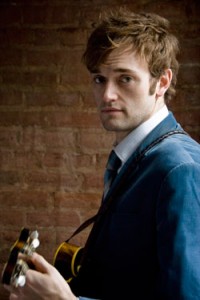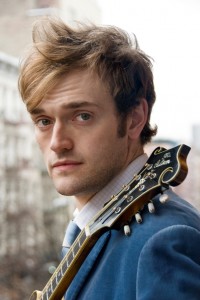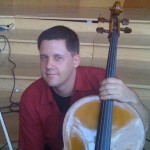 Leon Kirchner died today after a long illness. NewMusicBox has an obit. We’ll add more as we find them.
Leon Kirchner died today after a long illness. NewMusicBox has an obit. We’ll add more as we find them.
The Boston Globe had a 90th-birthday interview with Kirchner just this past January.
Jeremy Denk
Beautiful older piece by Jeremy
The Original New Music Community
 Leon Kirchner died today after a long illness. NewMusicBox has an obit. We’ll add more as we find them.
Leon Kirchner died today after a long illness. NewMusicBox has an obit. We’ll add more as we find them.
The Boston Globe had a 90th-birthday interview with Kirchner just this past January.
Jeremy Denk
Beautiful older piece by Jeremy

Some years back I stumbled across The Open Space website, a creation of Perspectives of New Music stalwart Benjamin Boretz. PoNM was one of those forbidding obstacles every composition student of the 60s, 70s and 80s had to traverse and come to terms with; a journal more like a fair-sized paperback book, seemingly filled with discussions of Babbitt, Boulez, Webern, Carter, terrifyingly dense theories of pitch-class, set theory & etc. — many of us felt like we budding composers were suddenly expected to be quantum physicists rather than simply artists… Yet tucked into many issues might also be some nugget from the likes of Roger Reynolds or J.K. Randall, that read more like pure poetry; conceptual play that seemed light-years removed from the normal run of PoNM article.
Being up there on the masthead most of the journal’s life, Boretz’s name seemed to put him firmly in the “uptown theory” group. But what our young eyes couldn’t see for the forest was that his influence was one of the main reasons those other, more intuitive and free-form articles were studded amongst the hard theory. Boretz the artist has always nurtured a deep interest in a more purely “humanistic” brand of musical thinking and creation, which only became more pronounced as the years have passed.
As a more personal outlet for these interests Boretz, along with fellow composers J.K Randall and Elaine Barkin, in 1999 began The Open Space. Not only to get their own works to a wider audience, but to offer a diverse group of contributors a place and publication to run parallel or even counter to the standard PoNM fare. A glance through the contents of current and back issues of The Open Space Magazine will show a nicely bewildering variety of both contributors and subjects.
While The Open Space has had a web presence for ten years, it’s really been an afterthought to the physical magazine, CDs & etc. But that’s changing starting now: composer Dean Rosenthal is taking over the helm of the semi-languishing The Open Space Webmagazine, a fully online and independent branch of the larger Open Space. In Dean’s own words, the webmagazine will be “devoted to interaction and community that extends the breadth and reach of our print journal. The web magazine is a forum for actualizing content like interactive web art, experimental video, articles including audio, video, or other supplements, and related endeavors to encourage a multivalent culture that is possible only beyond print.”
The call for submissions is out; to learn more you only need to e-mail Dean (contact@deanrosenthal.org) with your idea or to receive more information.
![Ted Hearne [photo: patricia werner leanse]](http://www.muziekcentrumnederland.nl/typo3temp/pics/873bd67a78.jpg) Bit of a streak for American composers: this time last year we were congratulating Huck Hodge for winning the Netherland’s Gaudeamus Composition Prize. Now it’s Ted Hearne‘s turn, for his Katrina Ballads. From the press release:
Bit of a streak for American composers: this time last year we were congratulating Huck Hodge for winning the Netherland’s Gaudeamus Composition Prize. Now it’s Ted Hearne‘s turn, for his Katrina Ballads. From the press release:
This prize is € 4,550 and is meant for writing a new composition to be performed in the Gaudeamus Music Week 2010.
The Gaudeamus Prize and the honorable mention were awarded by jury members Huba de Graaff (Netherlands), Anne La Berge (Netherlands), and Akira Nishimura (Japan). For this year’s International Gaudeamus Music Week, which was open to composers under 31, the Gaudeamus Foundation received almost 400 scores from all over the world; the jury subsequently selected fifteen works to compete for the Gaudeamus Prize 2009.
Ted Hearne received the prize for a selection from Katrina Ballads, performed on September 10, 2009 at the Conservatory of Amsterdam by `the ereprijs with Wim Boerman conducting. Hearne himself was vocal soloist in this piece.
Hearne’s own website (linked above) has audio of some of the Ballads and a number of other works. We talked about these pieces here at s21, back in September last year; good to see this recognition as well.
This year’s honorable mention went to young Japanese composer/performer Toru Nakatani, who sounds like he’s persuing some interesting work:
In 1996 Nakatani built a microtonal guitar with movable frets. Two years later he began to play with rock groups, jazz orchestras and improvisation groups. He subsequently went to both northern and southern India and Sri Lanka in 2000 and during his stay in New Delhi studied dilruba, a classical bowed Indian instrument. He has built original instruments such as a 19-stringed guitar with jawari, an instrument consisting of resonating strings only, and a guitar based on just intonation. He has had solo performances with these instruments since 2001. In 2008 his piece (16_1/32_1) was awarded the third prize at the Toru Takemitsu Composition competition.
Nakatani’s website is more placeholder than anything else; still a name to watch for in the coming years.

Labor Day 2009 and while John Clare has an airshift, he also has an interview. Chris Thile is relaxing in New York and making coffee, ready to talk shop. Thile jokes, waxes poetic and has a thoughtful answer for the questions. You see, Chris is about to add to the small repertoire of mandolin & orchestra concertos, with his own Ad astra per alas porci. The world premiere performances are September 17, 19, and 20, 2009 with The Colorado Symphony & Jeffrey Kahane.
In the second part of our interview Chris talks about how the piece came about and if others might perform it: Interview Part 2
Thile has been busy as well with his band, The Punch Brothers, and with a duo project with bassist extraordinaire Edgar Meyer. He’ll keep up the concerto as well, with six more chances for you to hear it, the Oregon Symphony (September 26, 2009; with Carlos Kalmar), the Alabama Symphony (October 29, 2009; with Justin Brown), the Los Angeles Chamber Orchestra (January 23 and 24, 2010; again with Jeffrey Kahane), the Winston-Salem Symphony (March 13, 14, and 16, 2010; with Robert Moody); the Delaware Symphony (March 19 and 20, 2010; with David Amado);and the Portland Symphony (March 28, 2010; with Scott Terrell).
The San Francisco Electronic Music Festival celebrates its 10th anniversary this week. On the final festival night, Saturday, September 19th, the program will include a special all-electronic performance of the opera I, Norton, by San Francisco Bay Area composer Gino Robair.
I, Norton is based on the proclamations of Norton I, Emperor of the United States and Protector of Mexico, who lived during the Gold Rush era in San Francisco. The concert begins at 8:00 p.m. at the Brava Theater Center, 2781 24th Street, San Francisco. Tickets are available online from Brown Paper Tickets.
 Gino Robair has created music for dance, theater, gamelan orchestra, radio, and television. His works have been performed throughout North America, Europe, and Japan. He was composer in residence with the California Shakespeare Festival for five years and served as music director for the CBS animated series The Twisted Tales of Felix the Cat. His commercial work includes themes for the MTV and Comedy Central cable networks. Robair is also one of the “25 innovative percussionists” included in the book Percussion Profiles (SoundWorld, 2001). He has recorded with Tom Waits, Anthony Braxton, Terry Riley, Lou Harrison, John Butcher, Derek Bailey, Peter Kowald, Otomo Yoshihide, the ROVA Saxophone Quartet, and Eugene Chadbourne, among many others. He is a founding member of the Splatter Trio and the heavy metal band Pink Mountain. In addition, he runs Rastascan Records, a label devoted to creative music.
Gino Robair has created music for dance, theater, gamelan orchestra, radio, and television. His works have been performed throughout North America, Europe, and Japan. He was composer in residence with the California Shakespeare Festival for five years and served as music director for the CBS animated series The Twisted Tales of Felix the Cat. His commercial work includes themes for the MTV and Comedy Central cable networks. Robair is also one of the “25 innovative percussionists” included in the book Percussion Profiles (SoundWorld, 2001). He has recorded with Tom Waits, Anthony Braxton, Terry Riley, Lou Harrison, John Butcher, Derek Bailey, Peter Kowald, Otomo Yoshihide, the ROVA Saxophone Quartet, and Eugene Chadbourne, among many others. He is a founding member of the Splatter Trio and the heavy metal band Pink Mountain. In addition, he runs Rastascan Records, a label devoted to creative music.
S21: His Imperial Majesty Norton I, Emperor of the United States and Protector of Mexico, is an “only in San Francisco” kind of personage. What inspired you to make him into the central character of an opera?
GR: He’s the kind of complex character one needs for an opera. And I like the fact that he’s mythologized somewhat.
Although many people see him as this incoherent, homeless vagrant, I think the reality is that he was bright man who was determined to make a difference in a world that was hostile, confusing, and often out of control. We’re talking about the Old West, here!
Remember, he was a Jewish immigrant from South Africa. Try to imagine the culture shock he experienced arriving in mid-19th-century California during the Gold Rush. It makes total sense to me that he’d conclude that the only way to solve the problems in his new environment was to roll up his shirt sleeves and do the job himself.
 The New York Times Arts Beat has details about a $10 million dollar gift the New York Philharmonic recently received from equity manager Henry Kravis. A gift earmarked for new music, the money will underwrite composer residencies and commissions for the orchestra.
The New York Times Arts Beat has details about a $10 million dollar gift the New York Philharmonic recently received from equity manager Henry Kravis. A gift earmarked for new music, the money will underwrite composer residencies and commissions for the orchestra.
For those disheartened by the NYPO’s sometimes tepid commitment to new music during the 90s and 00s, this is a welcome sign that things may be changing for the better under the tenure of their new Music Director Alan Gilbert.
Magnus Lindberg will be the orchestra’s Composer-in-residence for the ’09-’10 and ’10-’11 seasons. New York audiences will get to hear four Lindberg works, including two commissioned by the Philharmonic, this season alone.
The question today for Sequenza21 readers: who would you like to see as the Philharmonic’s next Composer-in-residence? In addition, which composers should the orchestra plan to commission in coming years?
 It doesn’t seem all that long ago that I heard the world premiere of Blind Leaving the Blind. (Read about it here: S21 Review.) It was quite a night @ Zankel, St. Patrick’s Day 2007. Chris Thile has since recorded the work with the Punch Brothers, and made a duo album with Edgar Meyer. Now Thile is about to embark on another journey – a mandolin concerto, Ad astra per alas porci.
It doesn’t seem all that long ago that I heard the world premiere of Blind Leaving the Blind. (Read about it here: S21 Review.) It was quite a night @ Zankel, St. Patrick’s Day 2007. Chris Thile has since recorded the work with the Punch Brothers, and made a duo album with Edgar Meyer. Now Thile is about to embark on another journey – a mandolin concerto, Ad astra per alas porci.
This week he plays with The Colorado Symphony (September 17, 19, and 20, 2009; with Jeffrey Kahane), then six more chances to hear it, with the Oregon Symphony (September 26, 2009; with Carlos Kalmar), the Alabama Symphony (October 29, 2009; with Justin Brown), the Los Angeles Chamber Orchestra (January 23 and 24, 2010; again with Jeffrey Kahane), the Winston-Salem Symphony (March 13, 14, and 16, 2010; with Robert Moody); the Delaware Symphony (March 19 and 20, 2010; with David Amado);and the Portland Symphony (March 28, 2010; with Scott Terrell).
I talked with Thile about the new work, enjoy the first part of our discussion, including using amplification or not, and about his Steinbeck title: Interview Part 1
More tomorrow, including how the piece came about and if others might perform it!
Azica Records’ recording of the San Francisco Symphony playing Jerod ‘Impichchaachaaha’ Tate’s Tracing Mississippi, a four movement concerto for flute and orchestra, and Iholba’ for solo flute, orchestra, and chorus, (reviewed here by Jay Batzner) has been nominated for a NAMMY Award (Native American Music Award).
This is the 11th year for the Awards which will be announced on October 3 in Niagara Falls.
Here’s an interesting interview with Tate from YouTube:
 Last week on the podcast: Cliff Colnot (download Cliff’s interview here). This week: Nicholas Photinos, cellist in eighth blackbird (download Nick’s interview here).
Last week on the podcast: Cliff Colnot (download Cliff’s interview here). This week: Nicholas Photinos, cellist in eighth blackbird (download Nick’s interview here).
Turns out that 8bb was just finishing up some studio sessions at the end of last month for Reich’s Double Sextet. Unfortunately, we will need to wait over a year until we actually get to hear it. (Incidentally, Galen has some commentary about how frustrating it is that we have to wait so long for these recordings here.) Anyway, I don’t know how many ensembles think about their programming in terms of a five-course meal, but these guys do, and Nick tells us a little bit about that process. More beer!
Check-in next week for the first of two interviews with members of the Chicago based new music ensemble, dal niente.
As always, you can subscribe in iTunes here, on the web here, or just click here to download Nick’s episode.

When I finally struck out for the Kansas City airport on Sunday afternoon, Kyle Gann was about 45 minutes into a very chilled-out performance of his heroic four-and-a-half-hour transcription of Dennis Johnson‘s November–a piece which inspired La Monte Young’s The Well Tuned Piano and was the first minimalist piece to employ a diatonic scale, repetition, and to stretch for multiple hours. November probably would have been lost to history had Kyle not undertaken the work of rescuing it. Sarah Cahill was going to take over from him at some point that afternoon, and the final notes of that performance were to mark the official end of the conference.
While I did have to miss most of the November performance in order to catch my flight home, I’m pleased to say that in the course of the four and a half days of the conference I only missed the end of that performance, one paper on Sunday morning, and the opening remarks of the conference (having gotten lost on my way from the hotel that first day). Not all of the papers were brilliant, but some of them were, and all of them had at least some interesting features. Not all of the pieces on all of the concerts were brilliant, but every concert was worth attending, and some of the music was truly great. But I’ve talked about the papers and the concerts already: what I want to talk about now is the social experience.
Musicological research into minimalist music is a small and young field. Vast areas of theoretical and biographical groundwork remain to be done, there are few published close readings of even the most iconic pieces, and much of the work that has been done has not yet made it into the standard musicological journals and resources. One result, of course, is that researchers in musicology have the exciting prospect of building the foundation of the field, writing the essential papers that will guide future work, and making the kinds of profound discoveries that are so rare in more mature fields. The other result is a sense of comraderie among the participants in the research, promoted by the sense of common purpose, a need and desire to build on each others’ work, and the excitement of discovery. That sense of discovery isn’t just about discovering music or interesting research, but also about discovering a group of like-minded scholars who have been thus far toiling independently. Adversity, to be blunt, fosters community. I arrived in Kansas City knowing only a handful of people, and I left with the sense that I had begun dozens of potential friendships. Many of the papers I heard contained not just interesting material, but insights and references I wish I had know about when I was writing my own paper.
The other advantage of a conference in a small field is the fact that the major figures are accessible. One of Kyle Gann’s chief claims to fame in the musicological world is his tenure at the Village Voice, and his book Music Downtown, a collection of his writings for the Voice, is an essential primary source for anybody studying postminimalism. Before Kyle was covering minimalism for the Voice, though, Tom Johnson held the post from 1972-82, and his own collection of articles, The Voice of New Music, is similarly essential. Tom lives in Paris, and I had always assumed that I would never meet him, but he attended the whole conference, gave a talk about minimalism in Europe, and spent the week hanging out with the rest of us. I lean heavily on Kyle and Tom in my paper, and it was nerve-wracking to have them both in the audience, but the fact that they both seem to have liked my paper gives me confidence that I’m on the right track. Keith Potter, author of Four Musical Minimalists, was there, and I was delighted to find that he’s beginning some extensive further research on Steve Reich. Mikel Rouse was in town to present his film Funding, but in between visiting family in the area and visiting his favorite haunts from his own days studying at UMKC, he attended a number of the paper sessions. Conference co-organizer David McIntire gave a paper on Rouse, and most of us didn’t realize that Mikel was in the room–during the post-paper discussion someone pointed out that he could actually resolve a couple of questions for us, which he graciously did. Sarah Cahill played the piano beautifully, and in person she couldn’t have been nicer. Charlemagne Palestine played the organ beautifully, and in person he’s kind of a maniac. Paul Epstein gave a presentation a compositional technique called “interleaving” which he uses extensively and to excellent effect–after his presentation I assured him that I would be stealing the idea from him. And that’s just the people I had heard of beforehand.
The third installment of this conference series is tentatively scheduled for October, 2011, near Brussels. The plan is to switch back and forth across the Atlantic every two years, and 2011 feels like a long way off. While it was nice to get back home and to catch up on sleep (I was averaging about 4 to 5 hours a night while I was in KC), I also didn’t want to leave.
P.S. Here’s a copy of my paper as delivered at the conference, including typos and still sans bibliography. For more about the conference itself, don’t miss Kyle’s series of postings over at his blog.